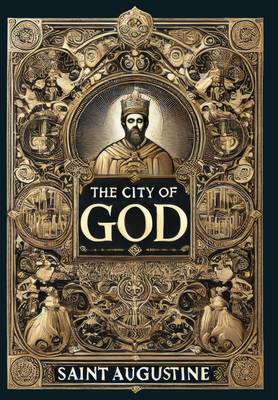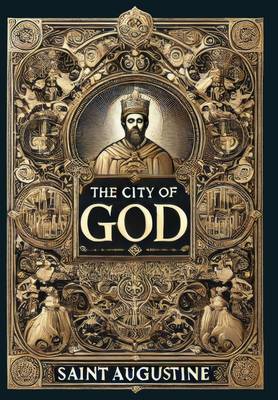
- Afhalen na 1 uur in een winkel met voorraad
- Gratis thuislevering in België vanaf € 30
- Ruim aanbod met 7 miljoen producten
- Afhalen na 1 uur in een winkel met voorraad
- Gratis thuislevering in België vanaf € 30
- Ruim aanbod met 7 miljoen producten
The City of God (Collector's Edition) (Laminated Hardback with Jacket)
Saint AugustineOmschrijving
The City of God by Saint Augustine explores the nature of human society and divine purpose in response to the fall of Rome. Augustine contrasts the earthly city, built on human pride, with the heavenly City of God, founded on love for God and eternal truth. Through this allegory, he examines the values shaping society, human suffering, and the hope for a transcendent realm, encouraging readers to reflect on deeper spiritual truths beyond worldly concerns.
The City of God by Saint Augustine is a pivotal work in Western thought, written in response to the fall of Rome to provide a Christian understanding of history and society. Augustine contrasts the "City of Man," driven by earthly desires, with the "City of God," focused on divine love and eternal truths. This work shaped medieval Christian philosophy, influencing views on morality, politics, and the role of faith, and left a lasting impact on Western ideas of human purpose and governance.
Specificaties
Betrokkenen
- Auteur(s):
- Uitgeverij:
Inhoud
- Aantal bladzijden:
- 1016
- Taal:
- Engels
Eigenschappen
- Productcode (EAN):
- 9781998621804
- Verschijningsdatum:
- 26/11/2024
- Uitvoering:
- Hardcover
- Formaat:
- Genaaid
- Afmetingen:
- 152 mm x 229 mm
- Gewicht:
- 1646 g

Alleen bij Standaard Boekhandel
Beoordelingen
We publiceren alleen reviews die voldoen aan de voorwaarden voor reviews. Bekijk onze voorwaarden voor reviews.











